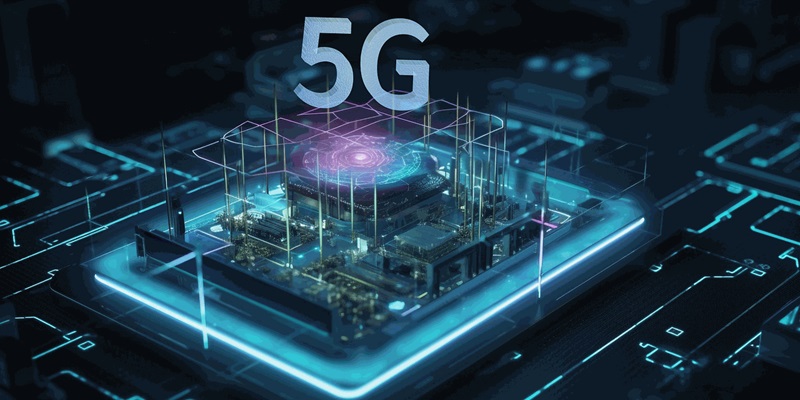The fallout from the global pandemic has unequivocally altered the terrain of customer expectations. Salesforce research has illuminated this shift, highlighting that a whopping 60% of service professionals have observed an increase in expectations among clients. In today’s digitally connected world, customers seek instant gratification and seamless interaction with businesses. Those companies that can provide robust connectivity and flexible services are the ones paving the path to enduring customer loyalty and satisfaction. This heightened demand for reliability and speed places an extraordinary emphasis on the infrastructure of connectivity, making 5G FWA an attractive proposition.
5G FWA as a Solution for Enhanced Connectivity
Hindrances that typically face wired broadband solutions, such as geographical and infrastructural constraints, are being rapidly overcome by the deployment of 5G FWA. This technology allows for the transmission of high-speed internet using radio frequency spectrum, which makes it an invaluable asset, especially in areas where laying cables is impractical or cost-prohibitive. The direct consequence is a more inclusive digital ecosystem, where businesses in remote or hard-to-reach locations can also benefit from cutting-edge connectivity. Consequently, the deployment of 5G FWA is not just a matter of upgrading infrastructure—it is about expanding the potential for enhanced customer experiences globally.
Benefits of 5G FWA for Diverse Industry Sectors
The prospect of trenching streets for cable networks is a disruptive affair not just in terms of the urban environment but also in the context of the consumer experience. Enter 5G FWA, which promises to dramatically simplify the process of establishing and maintaining connectivity. A 5G FWA setup typically requires a 5G receiver at the customer’s premises, doing away with the need for extensive physical groundwork. The result is rapid deployment at reduced costs, opening up avenues for businesses to reinvest savings into customer-oriented services and innovations. The simplicity and agility of 5G FWA installations can therefore be a catalyst for customer satisfaction through enhanced service delivery and operational efficiency.
Empowering Sectors with High-Speed Connectivity
Beyond the parameters of simplified installations, 5G FWA is a force multiplier across various sectors. In manufacturing, it can support the Internet of Things (IoT) ecosystem, enabling machines to communicate seamlessly and reduce downtime. Farmers in the agricultural sector can deploy 5G FWA to harness precise data analytics for crop management, while healthcare providers can benefit from expedited access to medical records and support telemedicine initiatives. Retail businesses stand to gain immensely, too; improved connectivity ensures stronger supply chain management and superior customer service, directly influencing customer experience and loyalty. Thus, the virtues of 5G FWA connectivity reach far and wide, enhancing sector-specific customer experiences through increased reliability and speed.
Navigating the Implementation Challenges of 5G FWA
The introduction of 5G FWA into an organization’s existing network infrastructure inherits its own unique set of challenges. Planning and strategic foresight are quintessential to harmonize 5G FWA with legacy systems, to avoid bottlenecks, and to manage bandwidth needs efficiently. Companies must also be proactive in preventing network congestion to maintain quality service delivery. Furthermore, providing consistent post-deployment support is vital to ensure uninterrupted connectivity, as 5G FWA is not merely an installation but a long-term commitment to exceptional customer experiences.
The Importance of Expertise and Strategic Partnerships
Navigating the intricacies of 5G FWA necessitates a high degree of technical skill and knowledge. Partnering with experts who can deliver tailored solutions ensures not just a smooth deployment, but also the strategic leveraging of 5G FWA to meet specific business needs. These partners should offer local insights and global reach, contributing to a comprehensive approach that maximizes the potential of 5G connectivity. Through such alliances, businesses can secure continuous monitoring and support, making adaptability and resilience the pillars of a customer-centric model in our hyper-connected world.
Anticipated Growth of 5G FWA Adoption
The trajectory of 5G FWA adoption predicts a noteworthy growth spurt. It is expected to burgeon from 35 million connections in 2023 to an astonishing 236 million by 2028, signifying the technology’s impending ubiquity in the connectivity landscape. This steep incline in adoption rates is a testament to the fundamental role that 5G FWA will play in shaping the future of business operations. Organizations that are early adopters will no doubt set benchmarks for performance and customer experience, solidifying their market positions for years to come.
Ensuring Competitive Advantage through 5G FWA
Operational continuity and agility to respond to market fluctuations are quintessential in contemporary business environments. 5G FWA emerges as a vital tool in this regard, providing businesses with the capability to deliver continual and robust services. By harnessing 5G FWA, enterprises can exceed the benchmark for customer expectations, ensuring a competitive advantage that is both durable and dynamic. As organizations integrate 5G connectivity within their service frameworks, they evolve from mere participants to leaders in offering innovative and responsive solutions that resonate with the evolving needs of customers globally.
By embracing 5G FWA, organizations can unlock a plethora of opportunities that culminate in delivering an unparalleled customer experience. With the guidance of specialized knowledge and strategic alliances, businesses can navigate the challenges of implementation, harnessing the power of 5G FWA to enhance customer satisfaction and achieve resilient operations in a digitized world.

